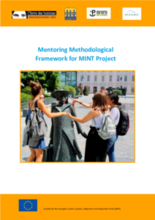Migrant children and youth are especially vulnerable to social exclusion. Through the MINT – Mentoring for Integration of third country national children affected by migration project, Terre des hommes and its partners aimed to empower refugee and migrant children, as well as European youth, to engage in new integration activities. As part of this EU funded project partnership worked in Romania, Poland, the Czech Republic, and Slovenia to support and facilitate the integration of children, to enhance social relations, and to empower both local youth and third-country national (TCN) children.
Their work was based on an innovative and replicable peer-to-peer mentoring programme based on good practices and tested models. Mentoring has proven to be an effective way to share knowledge, increase children’s social and emotional skills, and promote integration, giving young people the tools and support that they need through a structured programme. During the MINT project, recently arrived children were matched with local youth volunteers, who provided the children with support, advice, and friendship in order to facilitate easier integration.
Throughout of the project’s two mentoring cycles of 7-9 months in the four project countries, over 130 migrant children and over 110 local youth participated in the programme.
The MINT project was an action learning and innovation programme. The first edition of the Mentoring Methodological Framework was developed at the beginning of the project to inform the design of the mentoring component of the programme by MINT project partners. Project partners were encouraged to experiment with what worked best for their particular set of circumstances and communities – and to share reflections on their action learning towards the end product of an effective and innovative mentoring methodology. A contextualised, adapted and tested model was an important outcome of the MINT project.
This final Framework sets out guidelines drawn from existing documents and recognised good practice, as well as being informed by the experience of implementation.
This updated Framework is a useful resource for any organisation setting up a mentoring programme aimed at enhancing integration of migrant children.
Check out the document to learn:
- About mentoring
- How to design a mentoring program
- How to implement mentoring in practice, including practical tips for ‘going digital’
- About relevant cross-cutting considerations
- Get useful links and sample forms
The Framework is available in English, Czech, Romanian, Slovene and Polish.
Learn more here.

